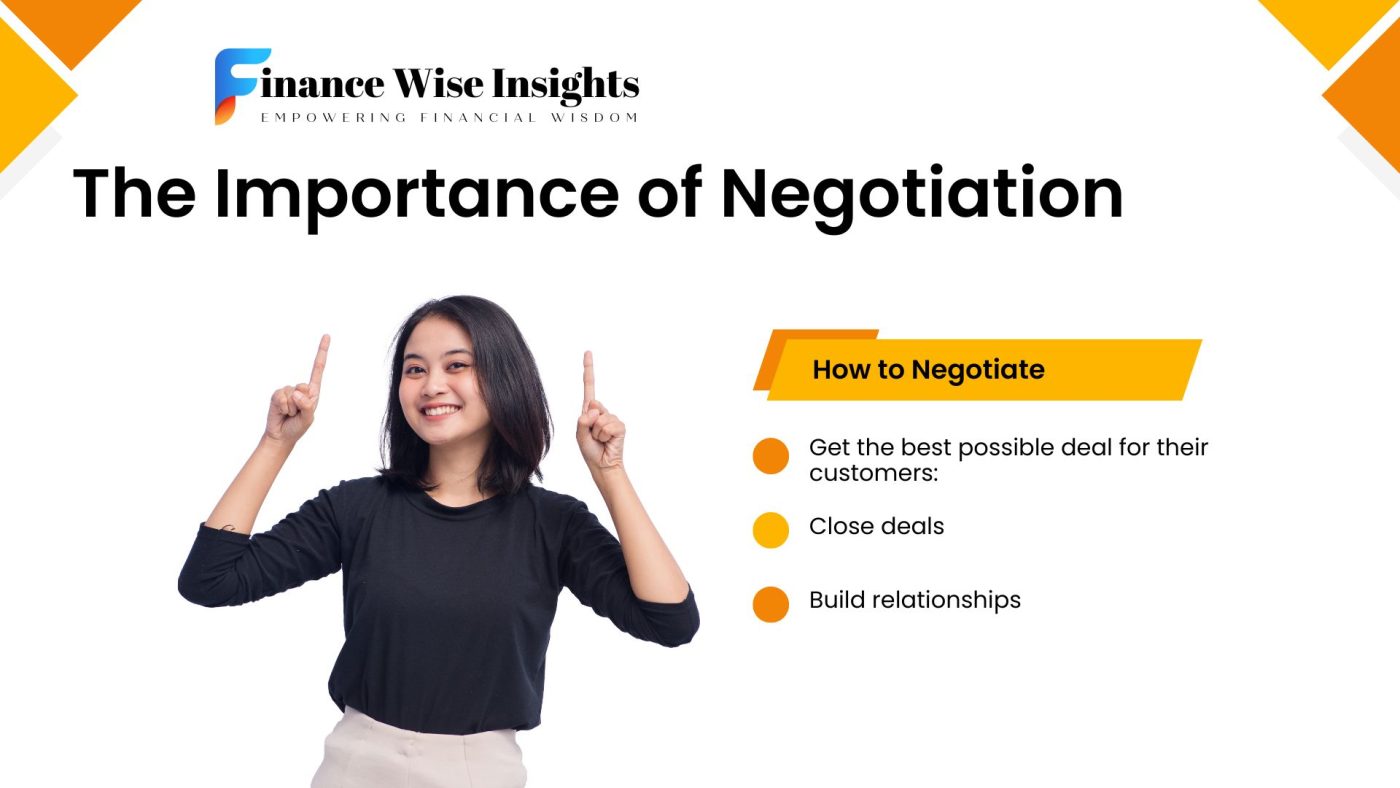The power of follow-up How to keep customers engaged by Negotiation
Negotiation is the process of reaching an agreement between two or more parties who have different interests. It is an essential skill for salespeople, as they often need to negotiate prices, terms, and conditions with customers. Let’s figure out The power of follow-up How to keep customers engaged by Negotiation
In today’s fast-paced business world, customer engagement is the key to success. It’s not just about attracting new customers but also retaining and nurturing existing ones. One effective way to keep your customers engaged is through follow-up and negotiation. In this article, we will explore the power of follow-up and how to leverage negotiation techniques to maintain strong relationships with your customers.
The Importance of Negotiation
Negotiation is important for salespeople because it allows them to:
- Get the best possible deal for their customers: By negotiating effectively, salespeople can help their customers save money or get better terms.
- Close deals: In some cases, negotiation is the only way to close a deal.
- Build relationships: Negotiation can be a great way to build relationships with customers.
How to Negotiate
There are a number of things that salespeople can do to negotiate effectively. Here are a few tips:
- Do your research: Before you negotiate, do your research to understand the other party’s needs and interests.
- Be prepared to walk away: If you are not happy with the terms of the negotiation, be prepared to walk away.
- Be flexible: Be willing to compromise to reach an agreement.
- Be professional: Always be professional and respectful during the negotiation process.

The Importance of Customer Engagement
Customer engagement is the lifeblood of any business. Engaged customers are more likely to make repeat purchases, refer others to your business, and provide valuable feedback. However, customer engagement doesn’t happen by itself; it requires a proactive approach.
The Follow-up Strategy
Timing is Key
To keep customers engaged, timely follow-up is essential. After an initial interaction, whether it’s a purchase, inquiry, or support request, don’t leave your customers hanging. Send a personalized follow-up message or email within 24-48 hours to show your commitment and interest in their satisfaction.
Personalization Matters
Personalized follow-up messages can make a significant impact. Use the customer’s name, reference their previous interactions, and offer tailored solutions or suggestions. This not only demonstrates that you value their business but also helps build a stronger connection.
Leveraging Negotiation for Customer Satisfaction
Active Listening
Negotiation is a two-way street, and active listening is a crucial skill. When engaging with customers, pay close attention to their needs, concerns, and preferences. Show empathy and understanding, which can lead to mutually beneficial agreements.
Win-Win Solutions
In negotiation, the goal should always be to reach a win-win solution. Ensure that both you and your customer feel like you’ve gained something positive from the interaction. This approach fosters trust and long-term loyalty.
The Role of Perplexity and Burstiness
To keep customers engaged, it’s essential to maintain a balance of perplexity and burstiness in your interactions. Perplexity keeps the conversation interesting, while burstiness adds excitement. By introducing surprises, rewards, and special offers in your follow-ups and negotiations, you can create a sense of anticipation and excitement.
Examples
Here are some examples of how salespeople can negotiate effectively:
- A salesperson might negotiate a lower price for a product or service.
- A salesperson might negotiate a longer warranty or return policy.
- A salesperson might negotiate a payment plan that is more affordable for the customer.
Practice Methods
There are a number of ways that salespeople can practice negotiating. Here are a few tips:
- Role-play with friends or family. This is a great way to practice your negotiating skills and get feedback from others.
- Join a negotiation training course. This is a great way to learn the latest techniques and strategies for negotiation.
- Volunteer your time to negotiate on behalf of a charity or nonprofit organization. This is a great way to practice your negotiating skills in a real-world setting.
Measurement Scale
There are a number of ways to measure the effectiveness of negotiation. Here are a few metrics:
- Deals closed: Track the number of deals you close as a result of negotiation.
- Customer satisfaction: Track the satisfaction of your customers with the negotiation process.
- Sales revenue: Track the sales revenue you generate as a result of negotiation.
Engaging Through Conversational Style
Using Rhetorical Questions
Engaging your customers through rhetorical questions is a great way to involve them in the conversation. Questions like “Wouldn’t you like to experience even better service?” encourage them to think about the benefits of continued engagement.
Incorporating Analogies and Metaphors
Analogies and metaphors can simplify complex ideas and make them more relatable. For instance, comparing the negotiation process to a dance can help customers visualize the back-and-forth nature of negotiations.
Conclusion
Negotiation is an essential skill for salespeople. By following the tips above, salespeople can improve their ability to negotiate effectively and increase their chances of success.

